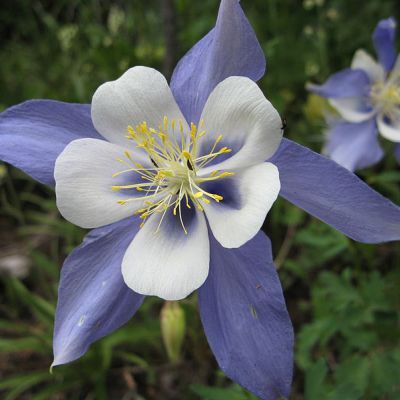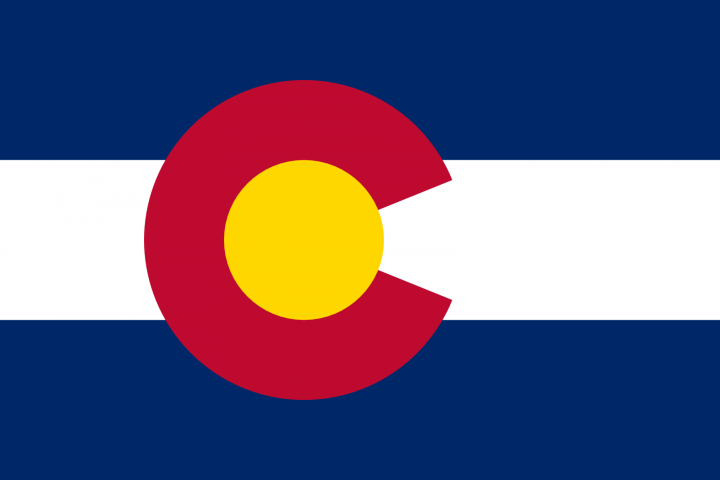How to Become an Ordained Minister in Colorado
If you haven't yet become ordained with the Universal Life Church, that is the first step. Anyone willing can become a legal minister of the ULC, one of the world's largest religious organizations. Online ordination is fast, easy, and completely free. Once you have your minister license, you'll be eligible to officiate a wedding. To become a minister, start by clicking the button below!
Video: How to Perform a Wedding in Colorado
Congratulations, your Colorado wedding ceremony awaits! More of a visual learner? Check out this in-depth video guide to performing weddings in Colorado! We'll walk you through each step of the process and provide clear action items to ensure you're properly prepared.
How to Officiate a Wedding in Colorado
Contact the County Clerk's office in the county where the ceremony will take place. Introduce yourself as a minister officiating a wedding, and ask them what documents they will need from you. They may ask to see a number of things, and be aware that these requirements vary from county to county. Rest assured that any materials or documents you might need are available in the Church Supplies section of our website.
Select your county to view contact information for each office:
Officiant Requirements in Colorado

The Colorado state flower, the Rocky Mountain Columbine
Once you've determined what you need, simply log in to your account and order the materials from our online catalog. Based on the feedback we've received from our ministers in Colorado, we recommend ordering a Classic Wedding Kit. Although ministers are generally not required to register in this state, it's possible the county clerk will ask you to present proof of your ordination before they will accept the legality of the ceremonies you've performed. Also keep in mind that the couple may like your ordination credentials. As requested by the county clerks, please try to place your order well in advance of the wedding to avoid complications.
How to Get a Colorado Marriage License
Licenses are issued by the County Clerk's office, and will be picked up by the couple. As a minister, you should be aware of the rules regarding marriage licenses in Colorado and its individual counties. For example, if the couple plans to get a Colorado Springs marriage license, you should double-check if there are any rules specific to El Paso County. In the state of Colorado, the license is valid for 30 days, and there is no mandatory waiting period before the ceremony can be performed. Finally, make sure the couple knows that the signed marriage license must be returned to the issuing office before the expiration date.
How to Perform a Wedding
Congratulations, you're ready to officiate a wedding! If you need any assistance in this important task, we encourage you to utilize the tools below. Together these exclusive resources include everything you'll need to craft the perfect wedding ceremony for any couple. Created with our ministers in mind, they offer tips and helpful information for all aspects of performing a ceremony. Fun fact: many ULC ministers have become professional officiants using these tools as a guide!
Finalizing the Marriage
After you perform the ceremony, you will sign the marriage license along with the couple and their two witnesses. Your title is 'minister', the ceremony type is 'religious', and the denomination is 'non-denominational'. You will not be required to provide a license number. You may also wish to give the couple a commemorative gift, like a marriage certificate to mark their special day. Last thing: make sure the signed license gets resubmitted to the marriage office before the deadline!
Colorado Marriage Laws
Marriage laws in Colorado are primarily directed by Title 14 of of the state's general statutes. This section defines persons authorized to perform a marriage in the State of Colorado, which includes ordained ministers of the Universal Life Church, among other individuals. We've reproduced the relevant portion below:
14-2-109. Solemnization and registration.
(1) A marriage may be solemnized by a judge of a court, by a court magistrate, by a retired judge of a court, by a public official whose powers include solemnization of marriages, by the parties to the marriage, or in accordance with any mode of solemnization recognized by any religious denomination or Indian nation or tribe.
Either the person solemnizing the marriage or, if no individual acting alone solemnized the marriage, a party to the marriage shall complete the marriage certificate form and forward it to the county clerk and recorder within sixty days after the solemnization.
Any person who fails to forward the marriage certificate to the county clerk and recorder as required by this section shall be required to pay a late fee in an amount of not less than twenty dollars. An additional five-dollar late fee may be assessed for each additional day of failure to comply with the forwarding requirements of this subsection (1) up to a maximum of fifty dollars.
For purposes of determining whether a late fee shall be assessed pursuant to this subsection (1), the date of forwarding shall be deemed to be the date of postmark.
View the Colorado Statutes on the official government state website.
How Do you Legally Perform a Wedding in Colorado?
See the CO Marriage CodeAre you Interested in Being an Ordained Minister in Colorado?
Learn About CO OrdinationBecome an Ordained Minister Today
Be Ordained Now